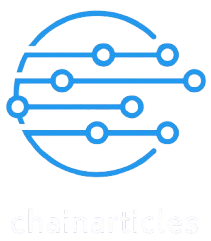Germany’s largest network of banks, Sparkassen-Finanzgruppe, is entering the world of digital assets. The group will offer bitcoin and ethereum trading to its private customers by summer 2026.
With 50 million customers and over €2.5 trillion in assets under management, Sparkassen’s move could speed up bitcoin adoption in Germany and across Europe.
For years, Sparkassen avoided digital assets. In 2015, the banking group even blocked digital-asset-related transactions due to volatility, fraud and lack of investor protection.
In 2023, the board of Sparkassen voted against offering digital asset services, calling digital assets “highly speculative”, but things seem to have taken a turn now. Customer and market demand, and new regulations, apparently forced the banking group to change its mind.
“We should offer customers the opportunity to trade cryptocurrencies at the Sparkassen as well,” said Matthias Dießl, President of Sparkassen in an interview with Bloomberg.
The bitcoin service will be integrated into the Sparkassen app, so customers can buy and sell bitcoin (BTC), as well as ethereum (ETH). The platform will be developed and managed by Dekabank, an investment arm of Sparkassen.
Dekabank already has experience in the Bitcoin space. It recently launched trading and custody services for institutional clients and got a digital assets custody license from Germany’s top financial regulator BaFin.
According to the German Savings Banks Association (DSGV) customers will have “reliable access to a regulated crypto offering”.
Despite offering bitcoin services, the Sparkassen group is being cautious. The DSGV said, “Our position remains clear: cryptocurrencies are highly speculative investments.”
No advertising campaigns will be launched for the new service. Instead, customers will get detailed information about the risks, including the possibility of loss.
The banking network will not provide investment advice, and customers will have to decide for themselves.
One of the reasons for the group’s change of heart is the new rules across the European Union. In December 2024 the EU’s Markets in Crypto-Assets (MiCA) regulation came into force. It created a uniform legal framework for digital asset businesses in all member states.
With this regulatory clarity, banks across Europe feel more comfortable launching bitcoin-related services.
Sparkassen group is following other German banks. For example, DZ Bank, Germany’s second biggest bank, partnered with Boerse Stuttgart Digital in 2024 to test a digital assets trading and custody platform.
Landesbank Baden-Württemberg, Germany’s biggest federal bank, is also currently working on custody solutions with Bitpanda.
Experts say Sparkassen’s move is a sign of bigger changes in the traditional financial system.
“(It’s a) big move for mainstream adoption,” said Filipp Bolotov, CEO of ERA Labs. Kyle Chasse, founder of Master Ventures, said: “Banks are catching up.”
Even people outside of Germany are taking notice of these developments. During Paris Blockchain Week, experts predicted banks would start offering more digital asset services as regulations get clearer.
Ric Edelman, a well-known financial advisor, recently told investors to allocate much more to digital assets. He told CNBC the traditional 60/40 portfolio no longer works. Edelman highlighted bitcoin’s performance and its growing role in a diversified portfolio as the main reasons.



